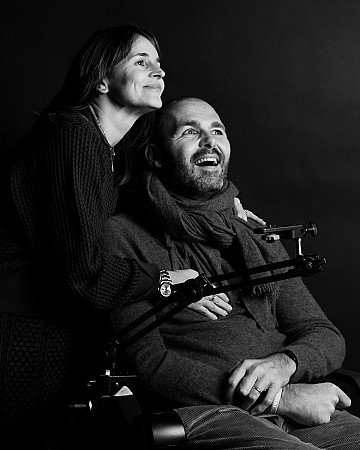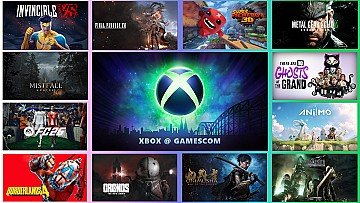How are you?
In the midst of winter, I found that there was within me an invincible summer. Albert Camus
“How are you, Olivier Goy?”
This was not the question I sent you via WhatsApp last Tuesday morning, January 23 to be exact, to begin our short epistolary conversation; it was your first answer. You asked me to ask you: “How are you?”
We have never met, dear Olivier, but as hundreds of thousands of people do in France by now, I know who you are. Colleagues and friends at the Paris Brain Institute introduced us formally by email a few weeks ago. Your story is at the heart of a unique, powerful, poetic documentary film, Invincible Summer.
When I asked if I could interview you and write this post, you were waiting to hear French Movie Academy Les César’s final selection of nominated films. You and journalists in France lobbied, campaigned and whispered to the voters, ‘Choose Invincible Summer,’ not to enjoy a few minutes of fame on stage but to use this platform to raise awareness about your disease. Fame is, after all, a fleeting commodity. Art, nonetheless, grows as a tree to eventually become a forest.
I learned about you only recently, Olivier. Last June 29, my younger brother sent me a note and a picture of you in an electric wheelchair, sitting on the running tracks of a stadium in the seaside town of La Baule, France. You were answering Alexandre Kouchner’s questions at Les Napoléons’ summer conference.
“Were you at the Paris Brain Institute for his photography exhibition?” my brother André asked me in a text message while you were speaking. “This conversation is very emotional,” he added in the same message.
“I was not,” I replied. “Tell me more.”
I was supposed to be at Les Napoléons, Olivier. We should have then met. It is one of my favorite summits, but I was attending meetings in New York.
Now we have met. I know your story. You, the booming 46-year-old tech entrepreneur, husband, and father of two boys, in December 2020, you were diagnosed with Amyotrophic Lateral Sclerosis (ALS), a.k.a. la Maladie de Charcot (the name of the scientist who fully identified this common yet orphan disease in 1874), a.k.a. Lou Gehrig’s disease in the United States.
Like you, Lou Gehrig, an American baseball player, gradually became a prisoner of his body. This fatal disease has no cure. Once diagnosed, life expectancy is short. Three to six years, a few extra months perhaps, as the nerve cells in your spinal cord and brain slowly degenerate. A trap swallows muscles, one by one—while your mind remains intact, conscious of everything and everyone.
“Were you at the Paris Brain Institute for his photography exhibition?”
So, you asked me to ask you, ‘How are you?’ You did not really give me the time to ask this question, did you? You answered it before I could, and here is what you replied:
“It is a seemingly harmless question, but it’s actually a difficult one,” you wrote. “If you observe me quickly, I decline. I don’t move as well. I no longer speak. I only drink through a stomach tube.”
And how could it be otherwise?
You have spent the last three years monitoring every muscle of your body. Are they louder than the day before? The extremities of your hands and feet, legs and arms, your ability to drink, and your vocal cords gradually let you down. Catching your breath becomes increasingly challenging day by day. With the diagnosis came the explanation. When you decided to go public about your disease in March 2021, four months to the day after you learned that a pain in your arm while playing tennis was actually the first sign of Lou Gehrig’s disease, your voice was the same as it was before. Clear, confident, and fast-paced. You recorded a podcast and did your “coming out,” as you said.
“The months that preceded this podcast were the worst of my life,” you told Alexandre Kouchner at Les Napoléons.
And how could it be otherwise?
There is no explanation for this disease. I checked. Genetics are rarely the cause. Neuroscientists still do not know what triggers ALS, and you are not the only one who suffers from it. In the United States alone, the Centers for Disease Control estimates 30,000 new cases every year, and 500,000 worldwide according to the President of Paris Brain Institute Gérard Saillant. When I sent invitations to Invincible Summer premiere in the U.S., three people told me that one of their parents recently passed from it.
ALS is an orphan disease, the least rare of the rarest. Uncurable. It is the date with death.
I rarely think about my death, Olivier. It was probably the same with you before, which is true with most people I know. It is silent, invisible, and not on my calendar. Of course, it is there, somewhere, but unlike its behavior with you, it has yet to show its shadow.
Death did not knock on your door; it opened it. It rushed in and made itself comfortable, moving furniture around, ignoring the people you love, the 100 employees, associates and business partners you work with at October, your company, shutting down one by one the little things that made your life so pleasurable.
You said doctors and a psychologist blazed a trail to transform your life’s unexpected darkness into an opportunity.
Invincible: incapable of being conquered, overcome, or subdued
“If you observe me quickly, I decline,” you wrote me, but then you said, “If you take a closer look, however, you’ll see a man in action. Full of dreams. Full of plans. Surrounded by friends and love. Very lucky.”
To ‘How are you,’ people commonly respond, ‘Very well and you,’ the answer we usually don’t listen to as we walk away relieved. Not you. The French novelist Romain Gary once wrote it is easier to confide in strangers. Not you. You answer to all of us: strangers like me and your friends. Your answer is available to all.
You are indeed a man in action, unstoppable.
When the disease caught you by surprise, you walked away from a moment of doubt and despair to prepare for its consequences and revisit your approach to life. Why would you be punished twice, you asked, from the disease and the void created?
When you realized that you were not the only victim of ALS—and yet had never heard of it, you took the stage. You met with other patients and allowed filmmaker Stéphanie Pillonca’s camera to follow you everywhere.
When your body started dimming, you decided to travel to Antarctica with your friends, calling it “an enchanted interlude out of time.”
When you could no longer speak, you used an app to translate your text into a computer-generated version of your voice you had previously recorded.
Since you have learned there is no cure for this disease, you have dedicated your days to raising awareness and funds to advance brain research.
Your photographs allow us to see a world of beauty through your eyes. They are either colored or monochromic words, musical notes, silences, and stories. What were you thinking when you photographed Brazilian photographer Sebastião Salgado’s son, who suffers from Down syndrome, posing for you with his parents? “I am not as talented as your dad,” we can hear you tenderly tell the son of the immense photographer in Invincible Summer.
Is there a point to compare talents?
You put your actions to work. How many talks did you give in big corporations, at KPMG, Deloitte, BNP Paribas, and Cap Gemini, to name a few, to help them change their behavior towards disability and long-term disease? At Les Napoléons, you mentioned Publicis and its CEO Arthur Sadoun’s crusade to change corporate culture for employees facing cancer.
There is a glimpse of hope. Your voice is vital, Olivier, but it also has a fee. You asked all these corporations to donate to the Paris Brain Institute to fast-forward research and find cures for ALS in exchange for your time, not for you but the generations to come.
Thanks to these talks, sales of your photographs, private screenings and the profits of the movie Invincible Summer, and a special evening in Paris last year, you have already raised over 1.7 million U.S. dollars.
As you wrote on WhatsApp, you are “surrounded by friends and love,” as seen in every sequence of Stéphanie Pillonca’s film. “Very lucky,” you added.
Would you allow me to think here of other patients, the invisible ones without a loving spouse, friends, and compassionate doctors, the ones drowning in what must be an insufferable loneliness?
You are also a man full of dreams, you said.
And you wrote me: “Very excited to hear the César’s nominations tomorrow (January 24) and if the film is selected.”
You have been campaigning to have Invincible Summer nominated for the French Movie Academy Awards alongside, journalists and other media on radio and television. How perfect would it be to leverage the César’s television platform to raise awareness about brain research, Lou Gehrig’s disease, and one or two things you have learned along the way?
I have watched Invincible Summer twice. The film’s showing will last long as its audience grows exponentially. I am not a film expert, so please forgive me when I say that nominating Invincible Summer is a no-brainer. Don’t art and culture also aim to inspire positive global conversation, especially in your case? Author and rabbi Delphine Horvilleur said that “you grant us a moment of appeasement in these times of hardship and darkness for many of us.” We all need it, whether we are sick or in good health, and I refuse to give up on


